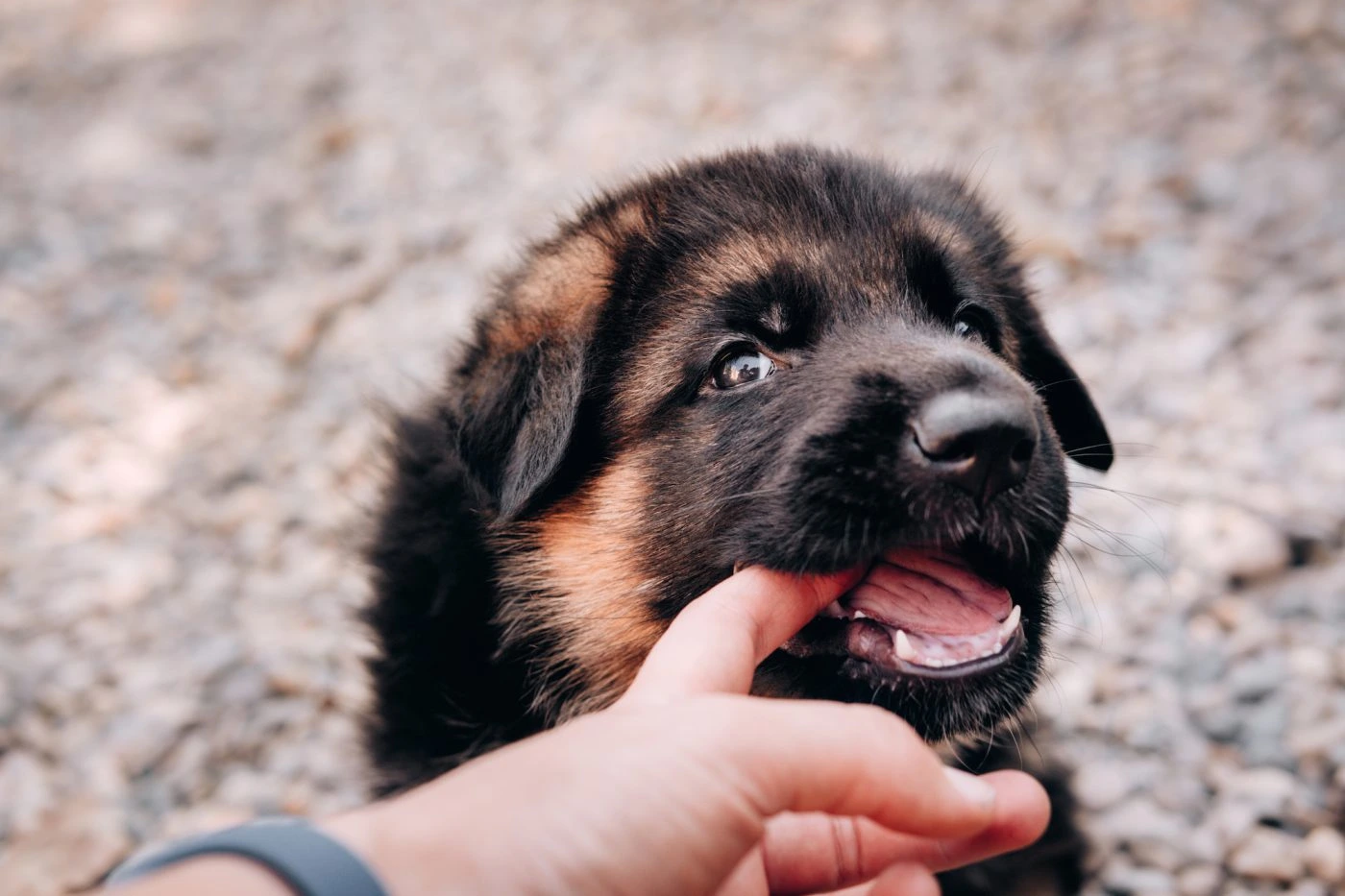Puppies are adorable, energetic, and often mischievous. As they explore the world around them, biting can be a common behavior that many new pet owners face. While puppy biting is natural and part of their development, it’s essential to teach your puppy appropriate behaviors to ensure a happy and safe home. This article will provide effective strategies for stopping puppy biting, understanding its causes, and promoting positive behavior.
Understanding Why Puppies Bite
Before addressing the issue, it’s crucial to understand why puppies bite in the first place. Here are some common reasons for biting behavior:
-
Teething
Just like human babies, puppies go through a teething phase, typically between three and six months of age. During this time, they may bite and chew on objects to relieve discomfort and soothe their gums. -
Playfulness
Puppies often play by nipping and mouthing, mimicking behaviors they would exhibit with their littermates. This play behavior can sometimes escalate, leading to more intense biting. -
Exploration
Puppies explore their environment with their mouths. They use their teeth to investigate objects, which can include your hands, clothes, or furniture. -
Attention-Seeking
Some puppies bite to gain attention, whether positive or negative. If they realize that biting prompts a reaction from you, they may continue the behavior. -
Overstimulation or Fear
Puppies can become overwhelmed or frightened in certain situations, leading to defensive biting. If they feel threatened, they may resort to biting as a form of self-defense.
Effective Strategies to Stop Puppy Biting
Now that we understand the reasons behind puppy biting, let’s explore effective strategies to help curb this behavior.
-
Redirect to Appropriate Toys
Provide your puppy with a variety of chew toys to help satisfy their natural urge to bite and chew. When your puppy attempts to bite you, redirect their attention to a toy. Encourage them to chew on their toys instead. This not only teaches them what is appropriate to bite but also helps alleviate teething discomfort. -
Use Positive Reinforcement
Reward your puppy with treats, praise, or playtime when they play gently or respond to redirection. Positive reinforcement helps them associate good behavior with rewards, encouraging them to repeat it. For example, if your puppy stops biting and begins playing with a toy, offer praise and a treat to reinforce this behavior. -
Yelp or Make a Sound
When your puppy bites you, make a high-pitched yelp or a sound that mimics their littermates' responses. This can signal to your puppy that they are being too rough and can help them understand that biting hurts. Immediately stop playing or engaging with them when they bite, as this mimics how their siblings would react in a similar situation. -
Time-Outs
If your puppy continues to bite despite redirection, consider implementing a time-out. This involves removing your puppy from the situation for a brief period (about 30 seconds to a minute) to help them calm down. Time-outs teach your puppy that biting leads to the end of playtime, encouraging them to choose gentler behaviors. -
Socialization
Properly socializing your puppy with other dogs and people can help teach them appropriate play behavior. Enroll your puppy in a training class or arrange playdates with well-behaved dogs to learn bite inhibition through positive interactions. Supervised play with other dogs can help your puppy understand how to play nicely and respect boundaries. -
Teach the “Leave It” Command
Teaching your puppy the “leave it” command can be beneficial for controlling biting behavior. Use treats to encourage your puppy to leave your hand or an object alone, rewarding them when they do. This command helps your puppy learn impulse control and can be useful in various situations beyond biting. -
Provide Regular Exercise
Puppies have a lot of energy, and pent-up energy can lead to biting and other undesired behaviors. Ensure your puppy gets plenty of exercise through walks, playtime, and mental stimulation. Engaging in activities that tire your puppy out can help reduce their urge to bite and lead to a calmer demeanor. -
Be Consistent
Consistency is key when addressing biting behavior. Everyone in your household should use the same commands and methods to correct biting. Mixed messages can confuse your puppy and make training less effective. Establish a consistent routine for redirection, rewards, and time-outs to reinforce the desired behavior. -
Avoid Negative Reinforcement
While it’s essential to discourage biting, avoid harsh punishment, as it can lead to fear and anxiety. Instead, focus on redirecting your puppy and providing positive reinforcement for good behavior. Negative experiences can harm the bond between you and your puppy and hinder their training progress. -
Seek Professional Help if Necessary
If your puppy’s biting persists or escalates despite your efforts, consider consulting a professional dog trainer or behaviorist. They can provide personalized guidance and support to help you and your puppy navigate this challenging phase.
Conclusion
Puppy biting is a common behavior that can be managed with the right strategies and patience. By understanding the reasons behind the biting and implementing effective training techniques, you can teach your puppy appropriate behaviors and promote a positive relationship. Remember to be consistent, use positive reinforcement, and provide ample opportunities for exercise and socialization.
With time and dedication, you can help your puppy grow into a well-mannered, loving companion who knows how to play gently and interact positively with those around them. Enjoy the journey of training your puppy and celebrating their growth!


